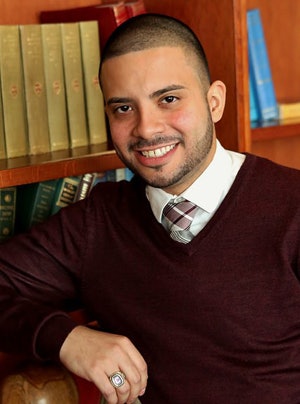If life as a tenure-track professor is so miserable, then why do you continue? As a doctoral candidate working on my dissertation while preparing for the faculty market, I have sought out thought pieces, attended early-career faculty programs, and paid special attention to what academics are saying on Twitter about life on the tenure-track. Does it get better after tenure? I’m sure it does — but online, with hashtags like #realacademicbios, what I see more often are sarcastic reminders from faculty that a lot of time goes into research that no one reads and reflections from faculty of the lack of a personal life because of the profession.
Faculty who seek to further diversify the professoriate should consider how they message life as an academic. While I do not want to suggest that they need to mislead aspiring professors and ignore the challenges and barriers they will likely face, I do think it is important to highlight or remind us why it is all worth it.
When I begin to worry about my future, or the impostor syndrome kicks in and I start doubting my ability, I reach out to my friends and mentors to reassure me that I am not setting myself up for failure or disappointment. Here are the gems of advice that keep me going:
 Andrew Martinez
Andrew MartinezAcademic Freedom — Freedom to pursue whatever I want to research, freedom to publish whatever I want, and freedom to teach courses that I want to teach are all enticing. While every faculty member should have this freedom, until you get tenure, your contract is always under review. I have been socialized to believe that life on the tenure-track can be stressful because you need to manage your research, teaching and service at an institution while fostering good relationships with your colleagues at your institution and across the country since you will be evaluated on a local and national level as a scholar before getting a tenure promotion. What this means is that many academics pursuing tenure have to navigate pursuing their passions while getting the support from the academic community. I have heard this can be real challenging for marginalized groups who may pursue “controversial” research that challenges the status quo. What happens when you are on the tenure-track within a toxic department that does not support your ideas? This may make that endeavor difficult. However, my mentors have talked about how after receiving tenure, they feel protected from backlash to speak up at faculty meetings and try to create change on their campuses
Flexibility with time — While every institution has its own culture (and perhaps every department within the institution), the idea that the expectation for me to be “at work” from 9-5 is not common. I expect to have to be present to teach courses, attend meetings, hold office hours for students and work on my own research agenda. In conversation with a colleague that attended a workshop where faculty emphasized the challenges of life as an academic and did not have much to say about the advantages, she shared a recent experience where she was able to work from home to be around for contractors to help fix severe damage to her house because of a storm. She talked about how many members of her family couldn’t afford to miss work, but also needed to figure out how to get their homes repaired. The ability to work remotely and have the flexibility to be on campus or elsewhere is a nice perk. My adviser, for example, is typically on campus Tuesday through Thursday. During those three days, she teaches her classes and makes herself available for students and colleagues. She cherishes her Mondays and Fridays as writing days at home.
Mentorship — Beyond helping cultivate the minds of my future students, I am reminded of the ability to serve as a role model for students like me. The only reason I ever considered entering a doctoral degree program is tied to the professors I had that said, “hey, have you thought about this.” As a low-income, first-generation college student, I did not have research experience as an undergrad. I was busy trying to adjust, let alone think about my future after receiving a bachelors. However, it was the faculty who cared about me beyond the confines of our class who led by example of the professor I would like to be — one that empowers their students, shares opportunities, and strives to create change through research and practice.
I know that some of this advice can be complicated depending on the institutional type, size and resources available to them. However, there have been too many times where I have left conversations about becoming faculty that were not institutional-type specific and left me concerned about my future rather than excited. Without the presence of more diverse faculty, the culture within higher education will largely remain unchanged. I cannot emphasize enough how important it is for current faculty to be realistic and forthcoming about their experiences while also sharing why it is that they continue to persist. For faculty reading this — why do you love your job?
Andrew Martinez is a Ph.D. candidate at the University of Pennsylvania’s Graduate School of Education and research associate at the Penn Center for Minority Serving Institutions. You can follow him on Twitter @Drewtle



















